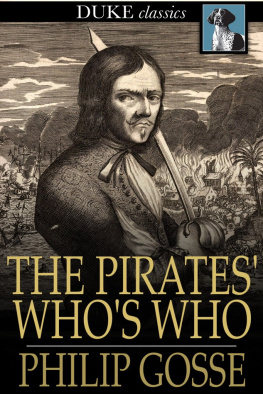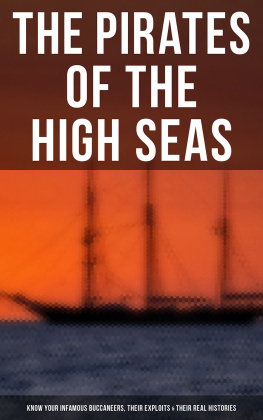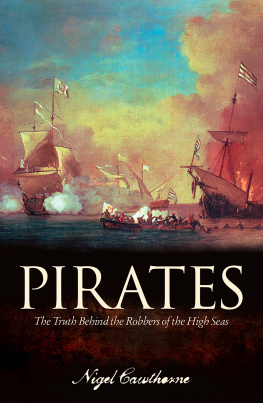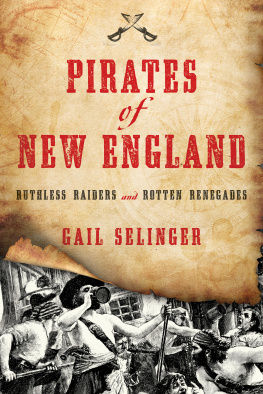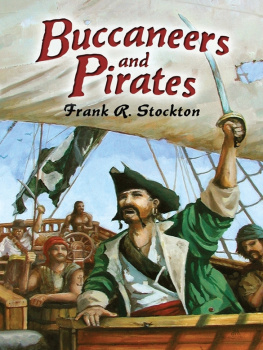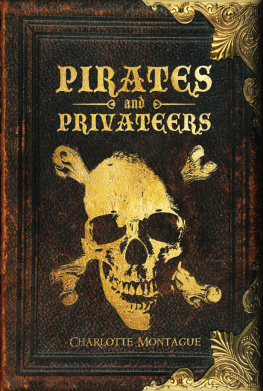THE PIRATES' WHO'S WHO
GIVING PARTICULARS OF THE LIVES AND DEATHS OF THE PIRATES AND BUCCANEERS
* * *
PHILIP GOSSE
*
The Pirates' Who's Who
Giving Particulars of the Lives and Deaths of the Pirates and Buccaneers
First published in 1924
ISBN 978-1-62013-294-4
Duke Classics
2013 Duke Classics and its licensors. All rights reserved.
While every effort has been used to ensure the accuracy and reliability of the information contained in this edition, Duke Classics does not assume liability or responsibility for any errors or omissions in this book. Duke Classics does not accept responsibility for loss suffered as a result of reliance upon the accuracy or currency of information contained in this book.
Contents
*
*
I Dedicate this Book
To
My Fellow-Members of
THE FOUNTAIN CLUB
With the Earnest Hope that Nothing
it Contains May Incite Them to
Emulate its Heroes
Preface
*
Let it be made clear at the very outset of this Preface that the pageswhich follow do not pretend to be a history of piracy, but are simply anattempt to gather together, from various sources, particulars of thoseredoubtable pirates and buccaneers whose names have been handed down to usin a desultory way.
I do not deal here with the children of fancy; I believe that every man,or woman toosince certain of the gentler sex cut no small figure at thegamementioned in this volume actually existed.
A time has come when every form of learning, however preposterous it mayseem, is made as unlaborious as possible for the would-be student.Knowledge, which is after all but a string of facts, is being arranged,sorted, distilled, and set down in compact form, ready for rapidassimilation. There is little fear that the student who may wish in thefuture to become master of any subject will have to delve into theoriginal sources in his search after facts and dates.
Surely pirates, taking them in their broadest sense, are as much entitledto a biographical dictionary of their own as are clergymen, race-horses,or artists in ferro-concrete, who all, I am assured, have their own "Who'sWho"? Have not the medical men their Directory, the lawyers their List,the peers their Peerage? There are books which record the names and theparticulars of musicians, schoolmasters, stockbrokers, saints andbookmakers, and I dare say there is an average adjuster's almanac. A peer,a horse, dog, cat, and even a white mouse, if of blood sufficiently blue,has his pedigree recorded somewhere. Above all, there is that astoundingand entertaining volume, "Who's Who," found in every club smoking-room,and which grows more bulky year by year, stuffed with information aboutthe careers, the hobbies, and the marriages of all the most distinguishedpersons in every profession, including very full details about the livesand doings of all our journalists. But on the club table where these booksof ready reference stand with "Whitaker," "ABC," and "Ruff's Guide to theTurf," there is just one gap that the compiler of this work has for a longwhile felt sorely needed filling. There has been until now no work thatgives immediate and trustworthy information about the lives, andso sadlyimportant in their casesthe deaths of our pirates and buccaneers.
In delving in the volumes of the "Dictionary of National Biography," ithas been a sad disappointment to the writer to find so little spacedevoted to the careers of these picturesque if, I must admit, oftenunseemly persons. There are, of course, to be found a few pirates withhousehold names such as Kidd, Teach, and Avery. A few, too, of thebuccaneers, headed by the great Sir Henry Morgan, come in for their share.But I compare with indignation the meagre show of pirates in thatmonumental work with the rich profusion of divines! Even during the yearswhen piracy was at its heightsay from 1680 until 1730the pirates areutterly swamped by the theologians. Can it be that these two professionsflourished most vigorously side by side, and that when one began tolanguish, the other also began to fade?
Even so there can be no excuse for the past and present neglect of thesesea-adventurers. But a change is beginning to show itself. Increasingevidence is to be found that the more intelligent portions of thepopulation of this country, and even more so the enlightened of the greatUnited States of America, are beginning to show a proper interest in thelives of the pirates and buccaneers. That this should be so amongst theAmericans is quite natural, when it is remembered what a close intimacyexisted between their Puritan forefathers of New England and the pirates,both by blood relation and by trade, since the pirates had no moreobliging and ready customers for their spoils of gold dust, stolen slaves,or church ornaments, than the early settlers of New York, Massachusetts,and Carolina.
In beginning to compile such a list as is to be found in this volume, adifficulty is met at once. My original intention was that only pirates andbuccaneers should be included. To admit privateers, corsairs, and othersea-rovers would have meant the addition of a vast number of names, andwould have made the work unwieldy, and the very object of this volume as abook of ready reference would not have been achieved. But the difficultyhas been to define the exact meaning of a pirate and of a buccaneer. Inthe dictionary a pirate is defined as "a sea-robber, marauder, one whoinfringes another's copyright"; while a buccaneer is described as "asea-robber, a pirate, especially of the Spanish-American coasts." Thisseems explicit, but a pirate was not a pirate from the cradle to thegallows. He usually began his life at sea as an honest mariner in themerchant service. He perhaps mutinied with other of the ship's crew,killed or otherwise disposed of the captain, seized the ship, elected anew commander, and sailed off "on the account." Many an honest seaman wascaptured with the rest of his ship's crew by a pirate, and eithervoluntarily joined the freebooters by signing their articles, or, being agood navigator or "sea-artist," was compelled by the pirates to lend themhis services. Others, again, were in privateer ships, which carried on alegitimate warfare against the shipping of hostile countries, under acommission or letter of marque.
Often the very commission or letter of marque carried about so jealouslyby some shady privateer was not worth the paper it was written on, nor thehandful of dubloons paid for it. One buccaneer sailed about the SouthSeas, plundering Spanish ships and sacking churches and burning towns,under a commission issued to him, for a consideration, by the Governor ofa Danish West India island, himself an ex-pirate. This precious document,adorned with florid scrolls and a big, impressive seal, was written inDanish. Someone with a knowledge of that language had an opportunity andthe curiosity to translate it, when he found that all it entitled thebearer to do was to hunt for goats and pigs on the Island of Hispaniola,and nothing more.
When, at the conclusion of hostilities, peace was declared, the crew of aprivateer found it exceedingly irksome to give up the roving life, andwere liable to drift into piracy. Often it happened that, after a longnaval war, crews were disbanded, ships laid up, and navies reduced, thusflooding the countryside with idle mariners, and filling the roads withbegging and starving seamen. These were driven to go to sea if they couldfind a berth, often half starved and brutally treated, and alwaysunderpaid, and so easily yielded to the temptation of joining some vesselbound vaguely for the "South Sea," where no questions were asked and nowages paid, but every hand on board had a share in the adventure.

